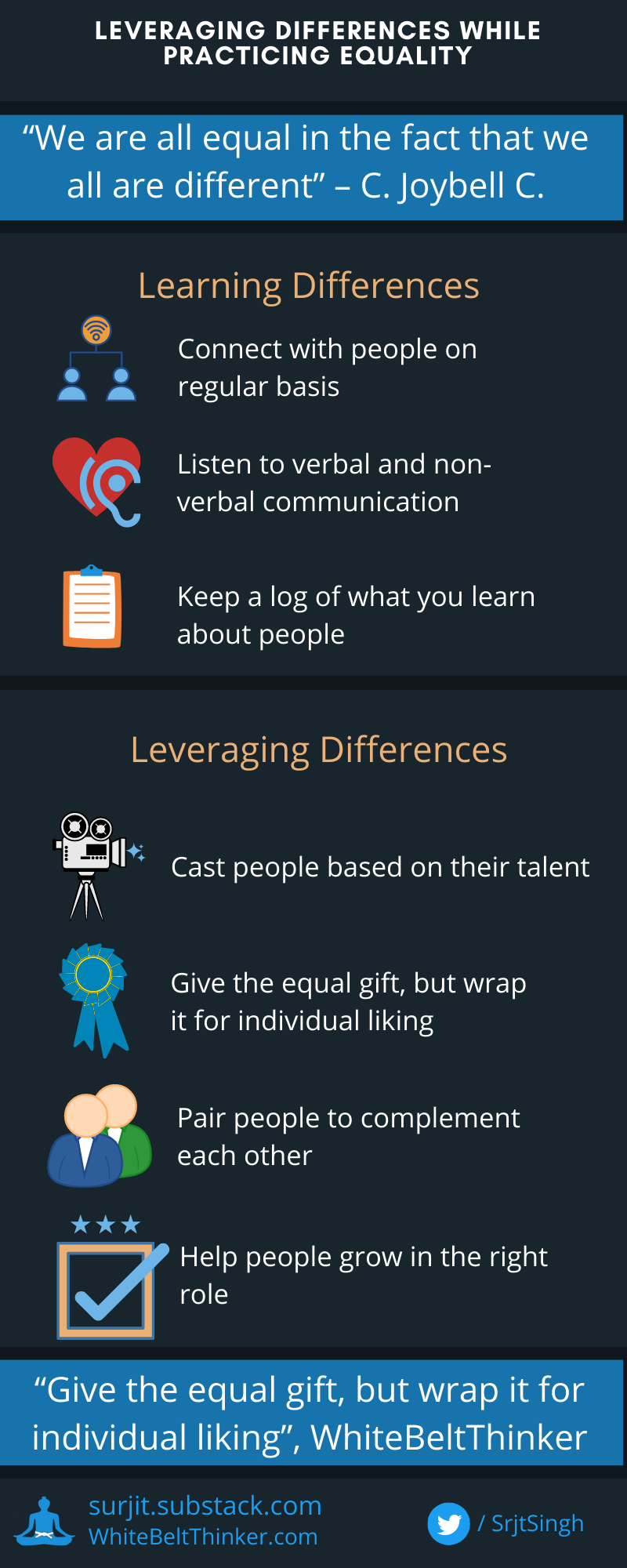Leveraging differences while practicing Equality
Equality is about treating everyone fairly and equally irrespective of their race, gender, disability, religion or belief, sexual orientation, and age. This is the one of most common values that we learn in modern communities and we are bound by law to treat everyone equally at the workplace. But, It is very easy to misunderstand the difference between “being equal” and “being same”. We are all equal but we are still very different.
“We are all equal in the fact that we all are different” – C. Joybell C.
We all think differently, learn differently, act or react differently. We value things differently, we are motivated by different things and we can perceive the same information differently. If we all were the same and we treat everyone the same then everything will be much easier. But the world will be such a boring place, luckily it is not. So if you want to lead or manage teams, it is important to understand, respect, and leverage the difference between different people on your team. That takes a lot of time and hard work. But learning and leveraging differences is a skill like any other and can be learned and mastered. Here are some of the tools you can use to learn about your team members:
Connect: Use your One-on-One meetings to connect with people on regular basis.

Active Listening: When you focus your heart and mind along with your ears. It helps you to builds trust and learn about the speaker. It is one of those “easier said than done” skills. Active Listening. it is not about understanding the content of the message but understanding the speaker’s feelings.
Keep Log: When you learn about people’s aspirations and motivations, do not rely on your memory to retain all that information. Keep a log of things that motivate them, are important for them, or are displeasing. This log represents your understanding of the person and you can keep improving it as your understanding matures.
Once you understand the team well, you can identify each member's Skills, Knowledge, and Talent. This is the most valuable information that you can leverage as a manager. Successful managers leverage this information for:
Casting: The most important function of a manager’s job is casting. Casting the right people for the right role in the team can make or break the team. Most successful manager’s cast based on Talents instead of Skills or Knowledge.
Reward: Once you learn and understand individual team members, you can reward them for their own liking. Not everyone in your team might like public appreciation, some might value a personal note.
“Give the equal gift, but wrap it for individual liking”, WhiteBeltThinker
Complementary Partner: In reality, not everyone in your team will excel at everything and you will not be always able to assign people based on their Talents. But once you do understand the strengths and weaknesses of individuals you can make sure you assign a complementary partner to fill in the Gap.
Find the Right fit: Most important function of any manager is to help their team grow. But the next level in the org chart is not always the right fit for people. You can work with individuals to find their perfect role instead of just pushing for the promotion to the next level.




